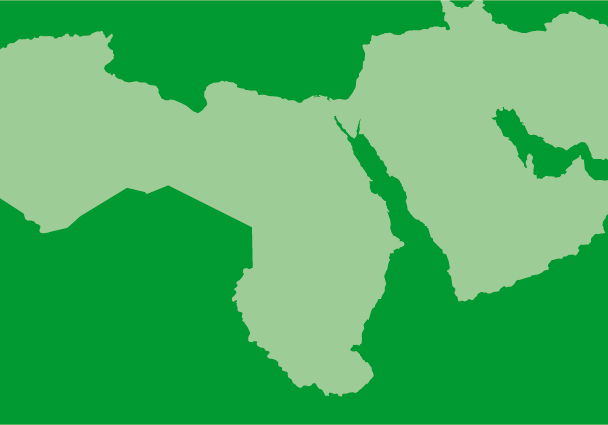An opinion editorial by By Ketil Lund, ICJ Commissioner, former Supreme Court Judge of Norway
The UAE has become a luxury tourist destination for international travellers. It projects an image of free and successful enterprise and lavish entertainment.
However, hidden under the veneer of luxury and opulence is a system that flagrantly violates human rights. For decades, the rights of working migrants to freedom of movement and to work and live in dignity have largely been denied. In recent years, UAE citizens have also become a target of the ruling authorities.
One example is the present ‘security’ case being tried at the UAE Federal Supreme Court.
On March 4, 2013, defence lawyers walked into the State Security Chamber of the Supreme Court empty-handed, forbidden from carrying even a pen.
Their task was to represent 94 UAE defendants, some of them judges, prosecutors, lawyers and human rights defenders, for their views on reforming the UAE constitutional system.
Under a number of vague articles of the UAE Criminal Code, the defendants are formally charged with “establishing, founding and administering an organisation, Da’wat Al Islah, with the aim of challenging the basic principles upon which the government of the State is based, taking control of the government and establishing a secret structure for the organisation.” Da’wat Al Islah has been operating legally since 1974 and has never before designated as unlawful.
For these ill-defined charges, the detainees face up to 15 years of imprisonment. Some of them have reportedly been subjected to torture and other ill- treatment, including severe beatings, prolonged solitary confinement, sleep deprivation, exposure to extreme cold, the denial of necessary medical treatment, administration of hallucinogenic drugs, and prolonged interrogation (of up to five days).
Instead of investigating these allegations, the UAE authorities are using coerced “confessions”, which result from such practices, as evidence against the defendants in court, and are going ahead with a trial that blatantly violates numerous international standards.
First, the trial is being carried out behind closed doors, in denial of the right to a public trial. Several international observers were either denied access to the country or to the courtroom.
Those family members that were permitted to attend proceedings were forced to sign a paper agreeing not to report on the proceedings of the trial or to communicate with international organizations. Individuals that have since reported details of sessions have been denied access and have even been prosecuted.
Second, the UAE authorities are carrying out the trial without basic guarantees of the rights to defence. Under pressure and intimidation, several lawyers have abstained from representing the detainees.
For more than eight months only one lawyer was representing all the defendants. Throughout this period, he was largely denied access to the detainees.
When such access was permitted, he had to consult with his clients in the presence of members of the prosecution. At the first session, defence lawyers were initially barred from even bringing files into the courtroom.
The UAE authorities are also carrying out the trial without guarantees of the presumption of innocence.
On the contrary, the presumption of guilt is the rule. In fact, the UAE authorities have already condemned the defendants and declared them guilty of planning to “harm” and “destroy” the country.
What the authorities seem to want is a mock trial to confirm such statements: a parody of justice where the defendants have to prove their innocence rather than the authorities proving their guilt.
But beyond guilt and innocence, the charges against the defendants are nothing more than an affront to their rights to freedom of association and assembly, and to take part in the conduct of public affairs.
For the authorities to recognize these rights they must be willing to accept and initiate reforms, democratize the regime, and cede some of their own power.
So far, there is no indication of any willingness for change. The trial of the 94 detainees follows on the heels of other recent cases where UAE authorities have detained and convicted individuals for expressing dissatisfaction with the government.
Instead of responding meaningfully to the legitimate demands of their people for democracy and human rights, the UAE authorities have chosen to crack down on human rights defenders and legal practitioners.
At a time when some autocratic regimes in the Middle East and North Africa region are falling apart, the UAE authorities have decided to emulate and use methods adopted by other repressive regimes to silence any dissent.
They are taking a one-way trip to the past and, in so doing, are nonetheless benefiting from the silence or, worse, the cooperation of western, democratic governments.
The United States Ambassador to the UAE has stated in relation to the case, “There are issues that every country is facing in this region and the announcement by the UAE that they’re going to try 94 people for working against the country is not a human rights issue because the accusations are over what the charges are in these cases.”
Such statements confirm that, when it comes to business and economic interests, democratic governments turn a blind eye to, and thereby implicitly condone, torture, ill-treatment and other human rights abuses.
For those who thought that such policies ended with the Arab spring, the disappointment is obviously profound.
Equally profound is the despair and injustice suffered by the 94 detainees and their families.
Unfortunately, nothing indicates that the trial and verdict will end this injustice.

